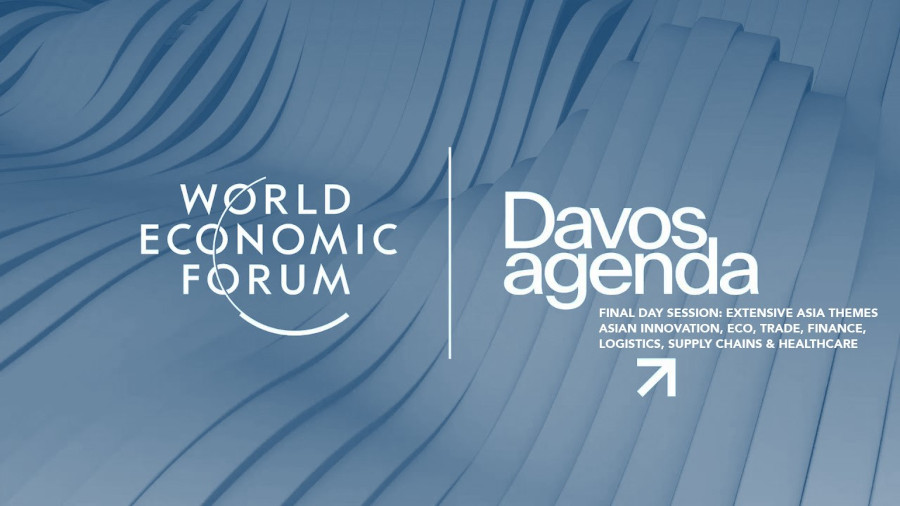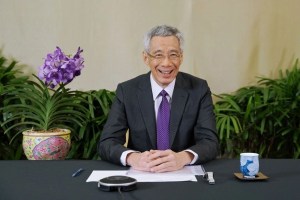World Economic Forum: Asia Special Focus 2021

Compiled by Chris Devonshire-Ellis
- Special focus on Asia on final day
- Keynote speeches by Prime Ministers of Japan and Singapore
- Transforming Supply Chains in The Asia-Pacific
- Resetting Geopolitics In Asia
- Greening International Trade
- Retooling Global Foreign Direct Investment
- Accelerating Digital Trade
- Re-Imagining Manufacturing For Growth
- Fixing The International Trade System In Asia
- Harnessing Emerging Technologies In India
The main theme of yesterday’s events was Asia and the Asia-Pacific, with numerous key sessions of interest to any businesses invested in the region, with an emphasis on recalibrating trade corridors with new and greener technologies.
Two Asian Prime Ministers gave keynote speeches, Japan’s Yoshihide Suga, in which he called for more transparency from China, and greater international cooperation concerning Covid, and reiterating Japan’s commitment to hosting the Olympic games this summer, saying he is in agreement with International Olympic Committee President Thomas Bach to stage them “at any cost” saying that “To realize a safe and secure games, anti-infection measures are extremely important. We are in the middle of considering the details of the steps.” Suga’s speech, with English translations, can be seen here

Singaporean Prime Minister Lee Hsien Loong gave the final address, with particular mention of China, saying that that China’s influence had grown so rapidly in recent years that it needs to “recalibrate its position” and do more globally to secure the legitimacy of its new-found standing. By providing what Lee termed “more global public goods” – whether for security, trade or climate change reasons – China’s growing influence would then be accepted internationally, he said, and Beijing would gain legitimacy as it benefits other countries rather than acting “at the expense” of those countries. Lee’s speech can be read in full here and heard here.
In terms of business and investment issues, the following subjects were the most applicable from yesterday’s sessions:
Transforming Supply Chains in The Asia-Pacific
With two out of three companies in Asia-Pacific planning to remodel their operations, prompted by technological shifts from the Fourth Industrial Revolution and the new economic context brought on by the pandemic, the region aims to create a more connected, resilient and sustainable supply chain system. What policies, best practices and innovative partnerships are underpinning supply chain transformations in the region?
Resetting Geopolitics In Asia
Despite the exigency of COVID-19 and of climate change, key countries are stepping back from efforts to manage these and other global risks. This Leadership Panel examines the crucial issues that require urgent international coordination in 2021 and how business can help accelerate collaborative efforts.
Greening International Trade
International trade accounts for about 25% of greenhouse gas emissions, yet the links between trade and climate change have been underexplored. What approaches and actions are needed to deliver a greener, fairer global economy?
Retooling Global Foreign Direct Investment
The COVID-19 pandemic has led to a 49% decrease in global foreign direct investment, severely impacting opportunities for sustainable growth. What transformations are needed to restore and rebuild global investments?
Accelerating Digital Trade
With services trade growing 60% faster than goods trade over the past decade, digital trade has become an economic hotspot.
How can digital trade ignite a worldwide boom in entrepreneurship and employment?
Re-Imagining Manufacturing For Growth
While lockdowns and demand shocks are undermining recent economic progress, manufacturing companies have a unique opportunity to reinvent themselves and become an engine of economic growth. What policies, practices and partnerships are needed to transform operating and business models to boost productivity while creating new value for companies, society and the environment?
Fixing The International Trade System In Asia
Amid political tensions and the response to COVID-19, the World Trade Organization estimates that global trade fell by 9% in 2020. This session examines how the international trade system will need to adapt to possible future disruptions beyond the pandemic and how industries and governments can work together in 2021 to make Asian systems more resilient.
Harnessing Emerging Technologies In India
The International Monetary Fund estimates that India experienced a 10.3% contraction in growth in 2020 but will rebound to 8.8% in 2021, regaining ground as the fastest-growing emerging economy. How can emerging technologies further boost productivity, expedite the growth transition and reinforce resilience to future shocks to meet India’s pressing challenges?
Sessions from Monday’s events included:
Keynote speech from Xi Jinping; Responding To The Covid-19 Crisis In Asia; Building Crisis-Resistant Healthcare Systems In A Post Covid World; Restoring Economic Growth; Building Net-Zero Cities; New Pathways To Economic Transformation; Developing The Evolution Of Stakeholder Capitalism, and Resetting Digital Currencies and can be accessed here.
Sessions from Tuesday’s events included
Special Address by Ursula von der Leyen (President, EU Commission); Special Address by Cyril Ramaphosa (President of South Africa); Speeches by Angela Merkel and Emmanuel Macron; and sessions: Re-Assessing Corporate Risks And Re-Inforcing Resilience; Strengthening The Financial & Monetary System; Designing Connected & Sustainable Value Chains; Reimagining Manufacturing For Growth; Rethinking Cities For A Post Covid Future; Resetting Consumption For A Sustainable Future and Preparing For Deglobalization and can be accessed here
Sessions from Wednesday’s events included
Special Addresses by Vladimir Putin, Moon Jae-in & Benjamin Netanyahu.
Sessions on Environmental Protection, Climate Change, New Technologies, Blue Oceans, Eco-systems and new Food Technologies and can be accessed here
Sessions From Thursday’s events included
Special Addresses by Narendra Modi, Prime Minister of India; King Hussein of Jordan, and Alberto Fernandez, Argentine President
Sessions on the 4th Industrial Revolution, Restoring Cross-Border Mobility, Reskilling and Upskilling Workforces in Asia, Shaping Empowered Data Societies, Accelerating Digital Inclusion In A Post Covid World, and Resetting The Business Of Data & A.I. and can be accessed here
An Executive Summary of the full week’s World Economic Forum with a particular emphasis on Asia will be published on Silk Road Briefing on Monday, February 1. Click here to obtain a complimentary subscription, and ensure you receive these updates as they appear.
Related Reading
- Asia Cooperation Dialogue, 17th Foreign Ministers’ Meeting: “The New Normal and Safe and Healthy Tourism”
- China’s Foreign Minister At The Belt & Road Forum For International Cooperation: Analysis Of Wang Yi’s Statements, And The Impact On China FDI & ODI In 2021.
About Us
Silk Road Briefing is written by Dezan Shira & Associates. The firm has 28 offices throughout Asia, and assists foreign investors into the region. For strategic advisory and business intelligence issues please contact the firm at silkroad@dezshira.com or visit www.dezshira.com





